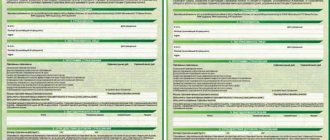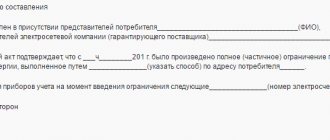More than one family, and not necessarily relatives, can live in both municipal and privatized apartments and private houses at a time. However, even when there are family ties, a person is considered to have left the family if he stops running a common household and has a separate budget, as stated in paragraph 29 of the Resolution of the Plenum of the Supreme Court of the Russian Federation dated July 2, 2009. As a result, new social units are formed.
Living in the same living space, each such unit of society is obliged to regularly pay bills for the use of utility services. If obligations are not fulfilled or are fulfilled incompletely, referring to the fourth part of Article 69 of the Housing Code of the Russian Federation, a debt appears for which fines are assessed.
Since the presence of debt will in any case have to be eliminated, it is necessary to know what constitutes so-called joint and several liability. According to the law, in particular, in accordance with Article 249 of the Civil Code, all adult residents must pay part of the payment in proportion to their share of the property or in equal parts if the allocation of shares has not been formalized.
The concept and reasons for the emergence of joint and several liability
The concept of joint and several obligation is defined - joint liability of debtors when the subject of the dispute is indivisible. Any housing can be considered indivisible, therefore all residents are equally obliged to participate in the costs of its maintenance and preservation. And if a utility debt arises, residents bear equal responsibility.
Thus, joint recovery is possible in cases where:
- the housing is in common joint ownership and one of the owners does not pay utility bills;
- a social tenancy or rental agreement has been concluded, but one of the tenants has incurred debts for housing and communal services.
The management company (MC) has the right to demand payment in full both from all residents living together and from any of them separately. The debtor who receives a request to pay the full amount is obliged to do so. The remaining residents are exempt from obligations. However, the tenant who has repaid the debt can himself make a demand for payment to the remaining residents.
Joint and several liability for utility debts in 2020
Reading time: 5 minutes
The legislation does not regulate the question of the extent to which all residents of an apartment bear debt obligations in the event of non-payment of housing and communal services.
There are two types of liability that arise when there are several debtors - joint and several.
As a rule, residents who have entered into a social tenancy agreement and members of their families are jointly and severally liable for debts for utility services. Therefore, the requirement to pay debt obligations can be presented to one person.
What is joint liability and how to avoid it?
Often, residents of the same apartment are not relatives, do not maintain a common household, and their budgets are different, but they receive the same utility bill. In most cases, the amount is paid by each of them in proportion to the occupied premises in the apartment by verbal agreement.
But there are also conflict situations when someone ignores the payment requirement. In this case, conscientious payers need to know how to defend their rights.
The Civil Code of the Russian Federation establishes the following rights and obligations for citizens to whom joint liability applies:
- exemption from payment of debt only if it is fully repaid by the other owner;
- right of recourse to debt payment. The payer has the right to recover damages from the true defaulter;
- participation in costs in proportion to the square meters occupied;
- allocation of a share for each owner;
- acquisition of the defaulter's share by other owners.
What is joint liability for utility bills?
Several citizens, often not even related to each other, can live together in one residential building.
All residents and owners are required by law to regularly pay for housing and communal services.
Typically, payments for housing and communal services are made by the owner, but if he is unable to fulfill his obligations, it applies to other residents of the apartment.
Civil legislation provides for two types of liability: joint and several and subsidiary.
Joint and several liability for debts for utilities implies that the management company has the right to foreclose on the debts of the owner of the premises against any capable tenant living with him in the same residential area.
The concept of joint liability
According to Art. 249 of the Civil Code of the Russian Federation, all adult residents of the apartment must pay part of the payment in proportion to their share or in equal parts, if the allocation of shares in the real estate has not been formalized. If debts for utility bills accumulate, under Art. 69 of the Housing Code of the Russian Federation, fines are assessed on the amount of debt.
So, what is joint liability for utility bills? Joint liability is the joint liability of a group of persons who have assumed obligations, in case of indivisibility of the subject of the dispute or joint infliction of harm.
What does indivisibility of the subject of the dispute mean in this case? This means that these persons jointly own one residential premises and equally use housing and communal services, in the payment of which they must participate.
Debtors can be held jointly and severally liable in the following situations:
- the housing belongs to the owner who does not pay utility debts;
- housing belongs to several owners;
- The apartment is rented under a social tenancy agreement.
In the latter case, all residents will be recognized as tenants of the premises, who are equally obliged to answer for utility debts.
When there are several owners of a premises, they usually divide personal accounts among themselves and pay separately for the services they consume. In this case, if one of the owners does not pay his debts, the second owner will not have to answer for them.
The management company has the right to make a claim to one of the owners or residents or jointly to all of them . If one of them receives such an obligation, he will be obliged to fulfill it. Then he will have the right to apply for a proportionate recovery of the amount paid from other residents.
On whom is it entrusted?
Art. 31 of the country’s Housing Code regulates a closed list of persons to whom joint liability for utility debts can be applied.
These include:
- Family members of the property owner who live together with him in the given territory.
- Former family members of the owner who continue to live together with him on the basis of a court decision.
- Citizens using the premises under an agreement providing for such an obligation.
In addition, the Management Company can force the owners of individual shares or those persons who jointly own the residential premises to pay their debts.
Management companies cannot enforce collection of utility debts only against minor citizens under the age of 14.
According to Government Decree No. 354, persons who actually live in a given territory for more than 5 days must pay utility bills.
Art. 325 of the Civil Code of the Russian Federation regulates the right of recourse of a tenant who has paid the full debt to other residents in the given territory. The decision to award the obligation to pay is decided in court.
How to get rid of joint and several liability?
Obviously, few people want to pay another person’s debts, especially if we are not talking about a relative, but an ordinary neighbor . In this case, how to avoid joint liability for utilities?
Often, residents not only have no family ties, they have separate budgets, but only receive one receipt for utility bills. Usually they pay a receipt in proportion to the space they occupy and the resource they consume by verbal agreement. This is not entirely correct from a legal point of view.
At any moment, relations with neighbors can deteriorate, which can lead to financial disputes over payment of utilities. In addition to the amount of debt for utilities, residents will be required to pay late fees in the amount of 1/300 of the refinancing rate of the Central Bank of the Russian Federation.
Also, management companies may suspend the provision of services or completely disable many resources. Sometimes it even comes to eviction of tenants from the apartment.
Persons to whom joint liability may be applied have the following rights:
- Exemption from debt payment only if it is fully repaid by other owners.
- The right of recourse to collect payment of debt from another tenant.
- Payment of expenses in accordance with the square meters occupied.
- Allocation of the share of each owner.
- Preemptive right to acquire the defaulter's share by other owners.
There is no need to pay other people's debts if this can be avoided legally.
Possible solutions to the problem
The easiest way to solve this reproduction is peacefully, by agreeing with other residents on the division of personal accounts and payment of debts in proportion to the area of residence. This agreement should not be oral, it should be documented by the management company, and best of all, notarized.
However, it is not always possible to solve this problem peacefully. If it is impossible to reach a compromise, you need to go to court. Courts consider cases of separation of personal accounts. The decision will record the division, and liability from the moment it enters into legal force will not be joint and several, but personal.
Possible ways to solve the problem can be outlined as follows:
- Payment of all debts and filing a claim in court by way of recourse. This should be done only when there is confidence that something can be recovered from the real debtor. If there is no such confidence, it is better not to take risks. You will have to wait a very long time for a refund in the future.
- Notarized division of personal accounts in court or peacefully.
The possibility of separating accounts is regulated by clause 30 of the Resolution of the Plenum of the Armed Forces of the Russian Federation dated July 2, 2009.
For tenants under a social tenancy agreement, the division of accounts will lead to the termination of the old agreement and the conclusion of a new one with each tenant of the premises.
Cancellation of a court order
Debts for housing and communal services are collected from debtors through writ proceedings . These are unconditional debts that do not need to be proven. Housing and communal services companies usually bring batches of applications to the court to issue court orders against debtors.
After receiving an application without summoning persons to a court hearing, the judge independently issues an order and transfers it to the bailiffs for collection.
If it is not possible to collect the debt from the owner of the premises, a court order is issued on joint and several liability for housing and communal services. More precisely, these are several orders regarding the attitude of all residents of a given premises.
After issuance, a copy of the court order will be sent to the apartment residents for review and the possibility of its cancellation . Residents have the right to cancel a court order if they do not agree with its contents.
To cancel the order, residents need to submit an application to the court to cancel the order, on the basis of which the court will be obliged to cancel the document. After the court order for the collection of utility debts is canceled, the housing and communal services company will file a claim in court on the same subject of the dispute.
When it comes to a lawsuit, the parties will participate in a court hearing, where they will have the right to defend and prove their position.
You can cancel a court order even after the deadline for appealing it has expired. To do this, you will additionally need to write an application to restore the missed deadline for appealing the document. Samples of such statements are always on stands in court buildings.
Features of judicial practice
Judicial practice in 2021 on the division of accounts or the cancellation of joint and several liability orders is varied. Writ proceedings are always more numerous than claims proceedings in terms of the number of decisions made.
Such decisions are considered only at the place of residence of the debtors. The issuance of orders and their cancellation is a matter for justices of the peace; claims for the division of personal accounts are matters for district courts.
In court, although court orders for debt collection are canceled, claims on the same issues in dispute are still satisfied. Therefore, in fact, residents cannot avoid paying the debt on utility bills; at best, they manage to delay the moment of collection.
In case proceedings, decisions to collect debt for utility bills in the manner of joint and several liability come into force one month after they are made. During this time, defendants may attempt to appeal the decisions to the appellate court.
Claims for division of accounts are almost always satisfied, even if the other party, in the form of another tenant, does not participate in any way in the dispute or speaks out against such division.
Payment of debts on utility bills is the responsibility of the owners of apartments, houses, rooms and other residential real estate . In a situation where the owner of the premises fails to pay debts, management companies have the right to collect these payments jointly from other residents of the premises.
Solidary collection of debts for utility bills is carried out in the order of writ proceedings.
Source: https://expert-home.net/solidarnaya-otvetstvennost-po-dolgam-za-kommunalnye-uslugi/
Consequences of non-payment of utilities
Even if late payment for housing and communal services occurs for valid reasons, the law provides for sanctions for late payments:
- accrual of penalties in the amount of 1/300 of the refinancing rate of the Central Bank of the Russian Federation (Article 155);
- suspension or restriction of services (clause 117);
- eviction from municipal housing (Article 90 of the Housing Code of the Russian Federation).
In cases where one of the tenants does not pay their share of payments, the management company may demand payment of the full amount from other tenants as joint and several liability. In case of failure to fulfill obligations, the debt is collected forcibly by a court decision, which names all the owners or tenants of the apartment.
How can you divide debts?
When one of the residents of an apartment systematically does not pay utilities, the rest have a question about whether it is possible to divide the rent debt between the residents. The solution to the problem will be:
- division of personal accounts between tenants;
- recovery of damages by the tenant who paid for the services from the defaulter.
The most convenient option is the personal accounts section. This does not affect ownership in any way, but involves a separate charge from the service provider for each resident.
A financial and personal account is issued for residential premises and contains information about:
- home improvement;
- technical characteristics of living space;
- provided utilities;
- all owners or tenants.
As a rule, personal accounts are separated if the housing has several rooms and the kitchen area is at least 6 m2.
If all residents agree with the division of payment, you must contact the management company:
- for tenants under a social tenancy agreement, this will entail the termination of the agreement and the conclusion of a new one with each of the tenants;
- for homeowners, in accordance with Art. 247 of the Civil Code of the Russian Federation - concluding an agreement on payment for housing and communal services with each owner in proportion to the share in the apartment and a separate agreement for payment.
If it was not possible to reach an agreement on payment for utilities between residents, the dispute over separate payment is resolved in court.
Joint and several liability for utility debts: legal collection procedure
Persons living in the same living space are required to pay for actually consumed utilities together. The distribution of responsibilities for paying rent depends on the status of the residents, the presence of a share in the apartment and the number of square meters occupied.
Legislative regulation
The emergence of joint and several liability is regulated by:
- Housing Code;
- Civil Code.
The obligation of a family member of the home owner to independently pay for the resources consumed is enshrined in clause 3 of Art. 31 LC RF, and art. 249 of the Civil Code states that co-owners of the premises must pay a fee for its maintenance in an amount proportional to the share in ownership. At the same time, the co-owners must divide the cost of maintaining the house among themselves, even if they live in another living space.
When and how does debt collection occur?
Collection of debts for housing and communal services from a person who is not the owner of the premises may be carried out in the following cases:
- when the debtor is a member of the owner’s family and lives with him (clause 3 of article 31 of the Housing Code);
- when the debtor is a former member of the owner’s family living with him on the basis of a court decision (clause 6 of article 31 of the Housing Code);
- if the debtor rents an apartment from the owner on a commercial basis and the rental agreement contains a clause obliging the tenant to pay for housing and communal services independently (clause 7 of Article 31 of the Housing Code).
The court may allow a former family member of the owner of the apartment to live in it if he renounced his share in the will or is a former dependent spouse of the owner.
It is also possible to collect housing and communal services debts from a person living in a municipal apartment and who has lost family ties with the responsible tenant (Clause 4, Article 69 of the Housing Code).
If a citizen living with the owner and bearing joint responsibility with him for paying rent has not paid for 2 months or more, then the following steps must be taken:
- Calculate the amount of debt that the defaulter must pay based on the share of the occupied living space.
- Present a written request to the debtor to make his part of the payment.
- If you refuse, send an application for division of your personal account to the management organization.
- If the debtor prevents the voluntary division of the account, demand to vacate the living space on the basis of Art. 35 Housing Code of the Russian Federation.
According to the provisions of Art. 35 of the Housing Code, a tenant who does not fulfill the obligation to maintain housing can be forcibly evicted, except in the case where such a tenant has a share in the property - in this case, it is necessary to demand payment of the rent debt or division of bills through the court.
If the owner has paid the rent 2 times in a row or more if the persons living with him are jointly and severally liable, then he has the right to demand compensation from the residents for each amount paid. The size of this amount depends on the number of residents and the square meters they occupy.
For example, if the owner lives in an apartment of 100 square meters. m together with two residents, who occupy 25 sq. m. m, then for each paid month he has the right to demand from residents 25% of the amount in the receipt.
Impact of registration
Collection of debts for housing and communal services in court is possible not only from persons who are officially registered in the owner’s apartment, but also from those who actually live in the living space for more than 5 days, and it is important to prove the fact of residence.
Registration of new residents in an apartment with debts for housing and communal services occurs in the usual manner, since registration issues are dealt with not by the management company, but by the migration service department.
It is important to take into account that if there are rent arrears, the newly registered person is jointly and severally liable only for payment for services actually consumed from the moment of registration.
Shared debt repayment
Joint liability for utility debts is provided for residents whose apartment is jointly owned, and citizens own property without a clear delineation of shares. But in some cases, by agreement between residents or by court order, a part of the apartment is allocated for everyone or only for the defaulter.
The division of housing is carried out in two ways:
- in kind - the owner receives possession of a separate room;
- ideally, the share in the apartment is not tangible, but the ownership right is divided among everyone, for example, three owners each receive 1/3 of the apartment.
The accumulated amounts of debt before the allocation of part of the apartment are paid jointly and severally. But after the allocation of shares has occurred, if there are rent debts, only the owner of this part of the housing is responsible for them.
In some situations, even after allocating a share in the apartment or dividing personal accounts, the problem tenant does not pay for housing and communal services. Such debts can no longer be recovered from former owners/bona fide payers. Therefore, management companies submit documents for trial to the court, which:
- consider the reasons for the debt;
- will find out whether the housing is the only one for the defaulter.
After receiving a court decision, if the shareholder does not pay for utilities and the amount of debt has reached the cost of part of the apartment, the bailiffs will offer the remaining co-owners to purchase his share. But this extreme measure is applicable only after identifying the following information:
- the defaulter does not have enough money in his accounts, deposits, or deposits with banks to repay the debt;
- there is no other property from which the debt can be paid.
The process of foreclosure on part of a debtor’s apartment has many nuances and largely depends on how the share was allocated.
Legislative nuances
Taking into account the fixed provisions of Articles 31 and 69 of the Housing Code, all participants in joint and several liability pay payments on an equal basis. However, there is also shared collection of debts, for example, from such persons as:
- The owner of the residential premises - pays for the maintenance and repair of real estate, major repairs, common property;
- Parents pay bills for their young children based on their housing share;
- A former family member of the owner of an apartment or private house, if they have entered into a written agreement with each other.
Sometimes it is necessary to involve everyone who uses housing in the payment, since, first of all, this is their responsibility assigned by Russian legislation. In addition, thanks to the joint performance of obligations, the likelihood of repaying debts is much higher than if you collect them from one person, who may not be solvent at all. We must not forget that in the event of a trial, if any of the residents filed a claim, everyone will be involved, including third parties. They may also be subject to claims by way of recourse.
Judicial decisions on joint and several recovery
Requests for payment of housing and communal services debts are considered at the place of residence of the debtors. If the amount of debt is up to 500,000 rubles, the application is considered by order without calling the parties, with subsequent notification of defaulters about the execution of the court order.
Conflict situations most often occur when the owners or tenants are strangers who have received the right to housing as a result of inheritance, donation or other means.
As a rule, payment for utilities occurs separately by verbal agreement between residents. Therefore, you can find out that there is a housing and communal services debt for several owners only after receiving a court order.
Practice shows that when collecting jointly and severally, owners often do not agree with the amounts presented and seek to send their objections in order to cancel the document. However, there are not many chances to achieve this, because the Civil Code of the Russian Federation provides for the only basis for releasing defendants from the obligation to pay - full repayment of the debt by one of the owners or tenants. In this regard, decisions are most often made to jointly collect debts for utility services.
What to do if you are not paying your debt?
Few people will be pleased to pay other people's debts, even while living in this apartment. To avoid getting such problems unexpectedly, you need to:
- Before moving into an apartment, even if it is one of your family members, check the information on housing and communal services debts.
- Before buying an apartment, ask the owner for a fresh certificate stating that there is no debt for housing and communal services. But, even if it happens that it exists, they have no right to recover it from the new owner, with the exception of the amount of major repairs.
If the matter comes to the bailiffs, then it will no longer be possible to cancel the collection. In this case, you need to negotiate with the person responsible for the debt so that he pays himself. But even if he does not pay, after the completion of enforcement proceedings, you can go to court with regressive claims for the debt. The court will order him to pay compensation.
If you find yourself in a similar situation, you can contact us for legal advice – it’s free.







